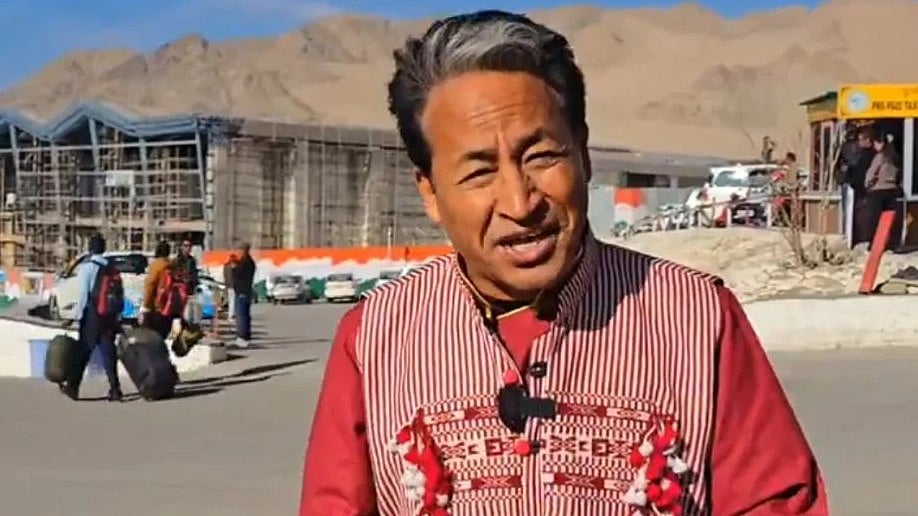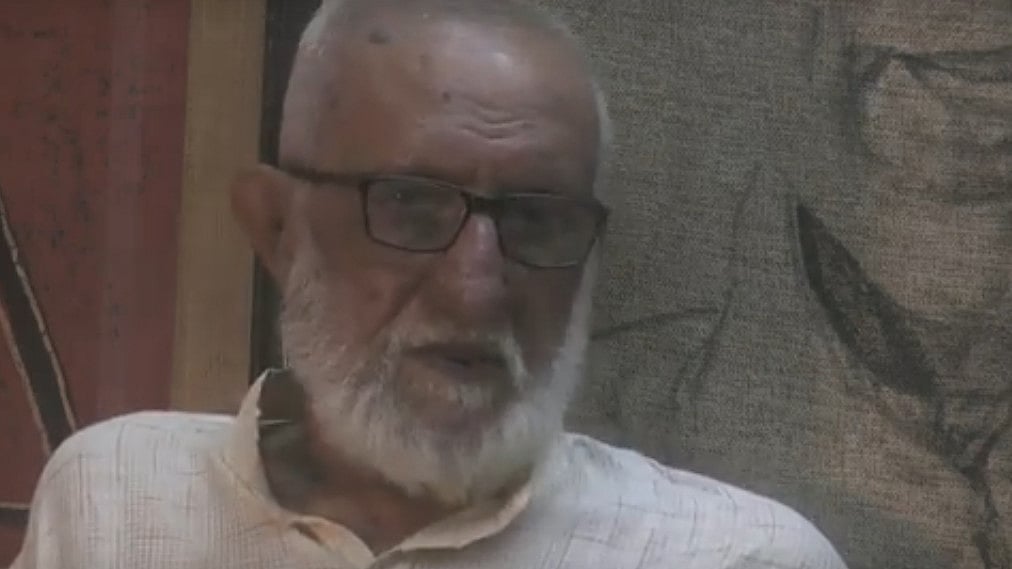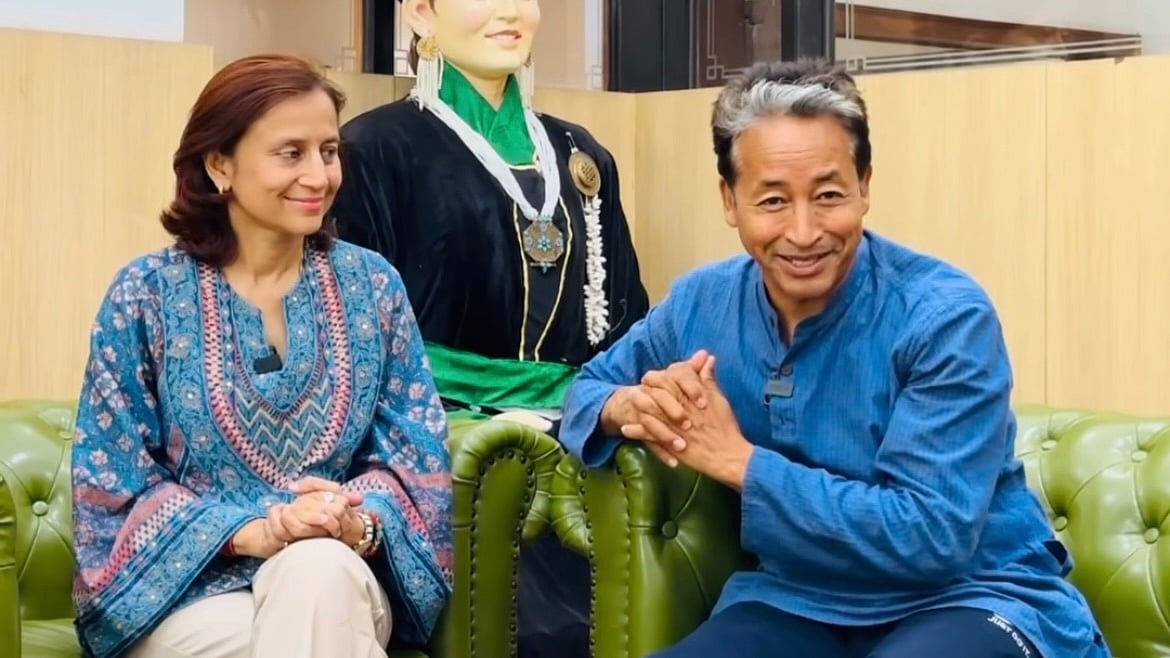The great auteur Satyajit Ray, whose 100th birth anniversary falls on May 2, will always be remembered for his cinematic genius, directorial excellence and futuristic vision conveyed through his films. A filmmaker of Ray’s calibre cannot be confined to a specific time period. He transcends that. In other words, his works aren’t periodically slotted. Just like the plays and sonnets of William Shakespeare, Ray’s films are for all ages and eras. Reason and vision were the embonpoints or celluloid leitmotifs of his films.
Now, when we’re facing flagellation and fusillades from the pandemic, the political interference and highhandedness of people in the corridors of power and irrational faith overwhelming reason and logic, there are two of his movies that come to mind as metaphors for the times we’re in: Ganashatru aka 'Enemy’ of the People (1989) and Devi (1960).
Contaminated water
In Ganashatru, a conscientious small-town physician, Dr Ashok Gupta (Soumitra Chatterjee), suddenly observes unexpected cases of a viral gastro-intestinal disease among the populace. The doctor, being familiar with the town and its civic problems, manages to pin down the source of the epidemic to the ritual holy water served in the local Hindu shrine. He realises that the holy water is contaminated, and the contamination is due to faulty plumbing in the temple.
Keen to stop a potential epidemic from spreading, Gupta urges people to shun the holy water till the epidemic is contained but ends up stirring a hornet’s nest of civic apathy, corruption, bribery and fanaticism. The people who benefit from the civic corruption, including his brother, turn against the doctor. Overnight, the honest and upright doctor – a servant of the people turns into the enemy of the people. Threats are issued, and his home is vandalised by members of the community who label him as the foremost public enemy.
Brave protagonists
Contextualising this with the ongoing pandemic and its ramifications, Professor Indranil Bhattacharya, Screen Studies and Research, FTII, writes, “Around the world – doctors, media people, scientists, and social workers are fighting against obscurantism, misinformation, and sometimes dangerous instances of blind faith. People who critique ‘official’ versions on the COVID-19 pandemic, act as whistleblowers, and expose corruption are getting labelled as enemies of the society. The powers that be are coming down on them with a heavy hand, sometimes aided by law. I am reminded of Li Wenliang, the Chinese doctor who first attempted to warn the People’s Government about the perils of the virus which was first observed in Wuhan in China. Wenliang, who was officially ‘reprimanded’ by the Chinese government, is the 21st-century version of Ibsen and Ray’s ‘brave protagonists’."
The confrontation between scientism and obscurantism during the ongoing pandemic was brilliantly explored and elucidated by Ray. Ray, it must be mentioned, was a skeptic or an agnostic, if not an outright atheist. He belonged to the Brahmo Samaj founded by Raja Ram Mohan Roy and flowered by Dwarkanath Tagore, Debendranath Tagore and Keshabchandra Sen. Though integral to Hinduism, the monotheistic sub-sect of Brahmo Samaj is based on reason and logic. To make an analogy, Brahmo Samaj is close to the Arya Samaj of northern India.
The questioners
Just like Sahir being terribly moved by the mayhem caused by Partition and becoming a lifelong atheist, the Great Famine of Bengal in 1943 and the sufferings of people had Ray questioning about the ‘arbitrary justice’ of god and efficacy of divinity. To put things in perspective, Ray was a liberal, with a rationalist view of the world. By his own admission, (in an interview) he termed himself as an agnostic. When quizzed about his spiritual beliefs, he said, “One lives and learns. I was born into the Brahmo community but I dislike such labels. Hinduism attracts me, with its coiled cultural layers, only as a rich source of contrasting situations and personalities. Well, I guess I’m an agnostic.”
Young Ray saw widespread superstitions during the famine and people’s religious gullibility made him question the intrinsic sanity of humans in such testing times. Those experiential imprints were grandfathered into the films Ganashatru and Devi.
The imposed deification and eventually, the disillusionment depicted in Ray’s Devi is today’s pandemic reality. The emergence of new gurus in times of Covid-19 and people pinning their faith on these charlatans reminds a sane person of Sir Carveth Reid’s telling words in his magnum opus, ‘Man and his Superstitions’ that, ‘Humans have a psychological proclivity to gravitate towards religiosity and irrationality esp. in times of a widespread disaster.’ So very true. Ray’s Ganashatru and Devi underline this collective tendency in an emphatic manner.
Voice of sanity
Being a rationalist and skeptic, Ray knew it well that the masses are driven by religious fervour and when it’s fervent at a collective level, the voice of sanity goes unheard. One doctor’s voice of reason was mercilessly hushed up by scores of superstitious people, just like a few voices of reason protesting against election rallies and Kumbh Mela were ignored by the people and politicians.
There’re people (as shown in Ray’s Ganashatru) who firmly believe that the corona is nemesis or divine justice or retribution. The Somali-Dutch ex-Muslim Ayaan Hirsi Ali termed it ‘Donche Debrium’ (Dutch for ‘divine attribution to all phenomena’) in her extremely polemic memoir, ‘The Infidel: My Story’. Rather than a proactive state machinery and a scientific temperament, we’re still worshipping gods and creating new ones (for example, the emergence of a brand-new corona goddess in the hinterland of Bihar) and believing that god will save us from this predicament.
Opium of the masses
The economically poor India concocted a goddess out of nothing. That deity is courtesy 'Jai Santoshi Maa' (1975). Now even ‘educated’ women worship this fictional goddess and observe a fast on Fridays! That only science can save us and not shrines is still not an acceptable idea to the religious-minded, credulous masses, not just in India but across the world.
Televangelists in the US are trying to convince people that Satan is doing this (corona) and that Jesus, the ultimate saviour, will save us from it. The conflict between faith and scientific modernity which linked Ray’s film with its ‘mother text’ – the play En Folkefiend by Ibsen, remain highly prescient even to this date. We must realise that faith, at best, can act as a palliative for the soul. Alas, this blind faith has become mankind’s inexorable, as well as ineluctable fate.
To encapsulate, Ray had a broad outlook and a prophetic vision that he infused into his films to make them relevant for the ages to come. In these times of an unexplained virus, his visual depictions and their underlying meanings and messages are all the more striking. His Ganashatru, Devi and even Charulata (The Lonely Wife) - from the perspective of loneliness that’s so palpable during the pandemic due to frequent lockdowns - were adumbrative of the times to come.
The writer is a regular contributor to the world’s premier publications and portals in several languages.










